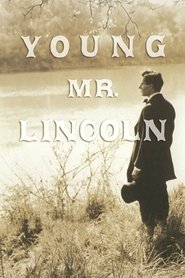A masterpiece of concision in which every element in every shot, every ratio, every movement, every shift of viewpoint seems dense with significance, yet it breathes an air of casual improvisation. While its surfaces paint, with relaxed humor and effortless nostalgic charm, an imaginary antebellum America, it sustains an underlying note of somber apprehension, all the more powerful for being held in check. Ford finds a mood that avoids the clutter and ponderousness of most Hollywood history movies, a mood more of parable than of textbook chronicle.[…]
As history, it is on many points not much more accurate than Plutarch; like the Greek historian, Ford relies freely on anecdote, rumor, and imaginative reconstruction to fill out his portrait. But, in a way, that is the point: he carves out a space beneath or before history in which past events, not yet ossified into the stuff of monuments, retain the lithe flexibility of what is not yet formed.
[…]
Young Mr. Lincoln is the product of an era when, elsewhere in the world, political mysticism was finding form in movies like Triumph of the Will and Alexander Nevsky, geometric odes to ritualized collective redemption. Ford seeks a cinematic language fit for democratic myth, and finds no easy resolution of the paradox that Lincoln, the great democratic hero, triumphs by a real intellectual and moral superiority [over] his fellows.
— Geoffrey O'Brien (Criterion)
Synopsis: In this dramatized account of his early law career in Illinois, Abraham Lincoln is born into a modest log cabin, where he is encouraged by his first love, Ann Rutledge, to pursue law. Following her tragic death, Lincoln establishes a law practice in Springfield, where he meets a young Mary Todd. Lincoln's law skills are put to the test when he takes on the difficult task of defending two brothers who have been accused of murder.

